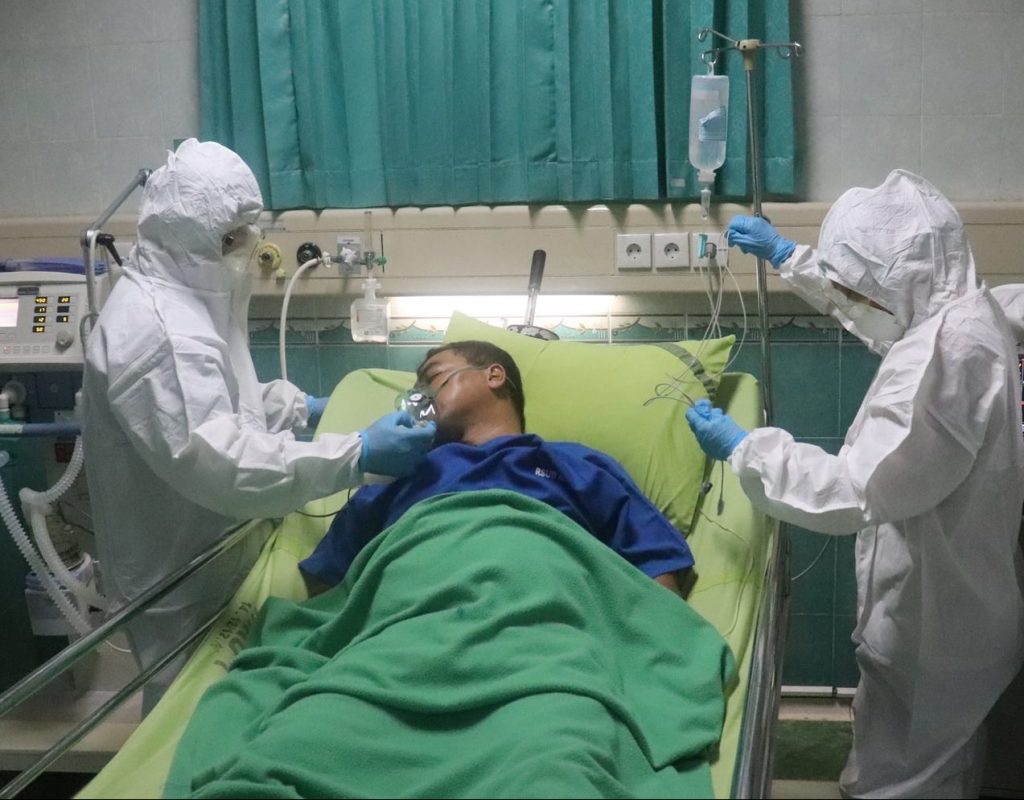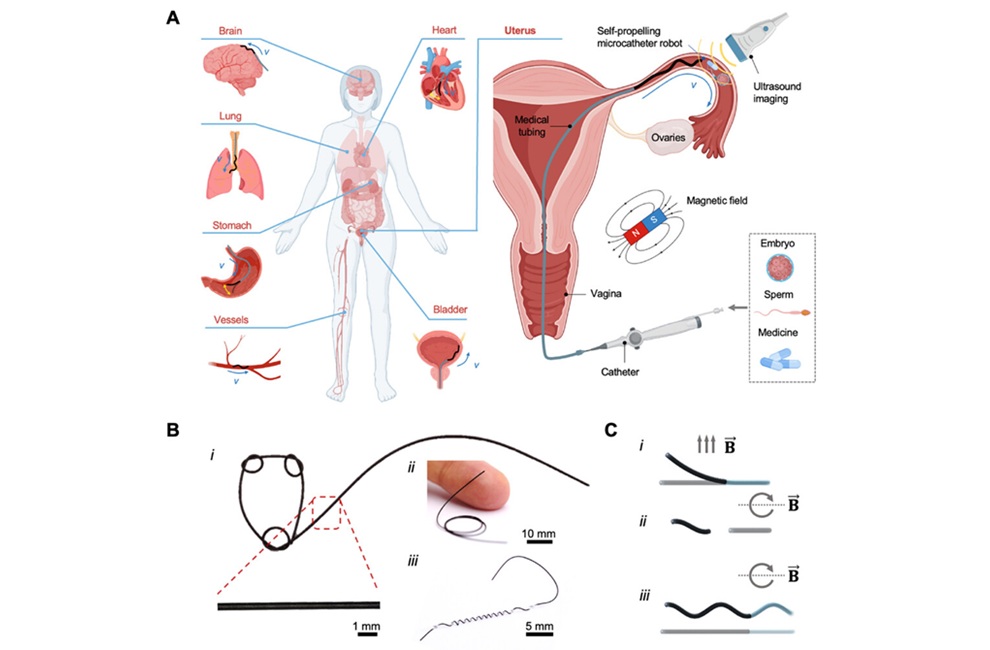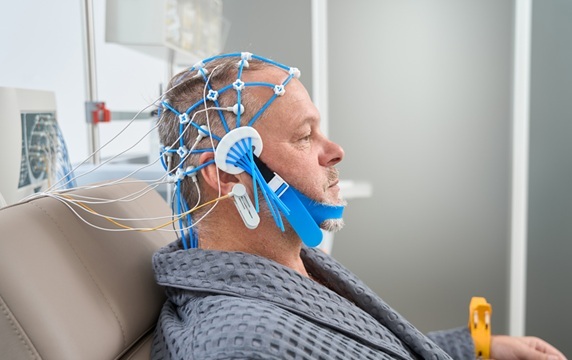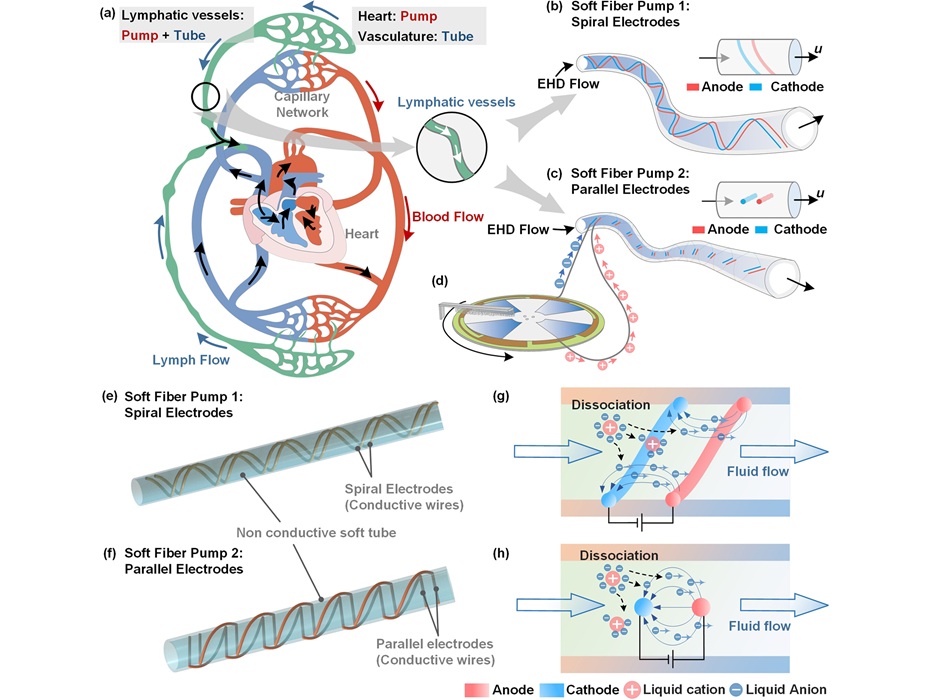Groundbreaking AI-Driven Sepsis Diagnosis Technology Could Guide Personalized Treatment for Hospitalized COVID-19 Patients
|
By HospiMedica International staff writers Posted on 04 Feb 2022 |

A novel diagnostic assay for the early and rapid diagnosis of sepsis, based on the detection of unique molecular signatures of sepsis specific to the immune response, rather than the presence of a pathogen, could guide personalized treatment for hospitalized COVID-19 patients.
Asep Medical Holdings Inc. (Vancouver, BC, Canada) has finalized an exclusive licensing arrangement with the University of British Columbia (Vancouver, BC, Canada) for a patented and potentially groundbreaking AI-driven technology that enables early and accurate diagnosis of the deadly disease sepsis, which is also a major contributing factor in COVID-19 morbidity. Asep’s novel diagnostic test called SepsetER senses the dysfunctional immune response underlying sepsis at the time that patients first enter the emergency room. The test is a blood-based gene expression assay that is straightforward to implement, and results are obtained in about an hour in the emergency room or intensive care unit. Current diagnostic tools deliver results after approximately 24-36 hours often delaying the initiation of treatment. SepsetER is designed to enable physicians to quickly predict the severity of the disease and thus define better, more immediate treatment options for the patient.
Sepsis, a difficult-to-diagnose disease because of extensive variability in symptoms and outcomes, can be divided into five separate subtypes/endotypes according to the underlying biological mechanisms that drive the disease. Patients hospitalized with life-threatening COVID-19 also fit into these same endotypes, indicating that many COVID-19 patients have severe sepsis. Two endotypes are particularly associated with more severe sepsis and accompanying organ failure and patients falling into these two subtypes were more likely to die. The most severe form of sepsis, occurring in up to one-half of all hospitalized COVID-19 patients, can lead to multi-organ failure, the requirement for mechanical ventilation, and in many cases death.
Furthermore, many patients who recover from severe sepsis suffer from chronic medical issues which are very similar to those issues that afflict patients that suffer from long-term COVID-19 disease, termed long COVID. Being able to classify sepsis into the five sepsis endotypes could provide key information to physicians regarding the underlying mechanisms of disease and help guide personalized treatment options for those patients at greatest risk of severe sepsis. Asep's patent licensing arrangement with UBC gives it exclusive rights to develop the sepsis severity endotypes into a diagnostic test and bring the test to market.
"This technology will enable us to make a major impact on the lives of patients who acquire this deadly syndrome. Early and accurate diagnosis is vital to saving lives and we expect this technology to be widely used in hospitals and clinics around the world," said leading UBC microbiologist and the company's founding director and COO, Dr. Robert E.W. Hancock who led the development of the technology.
Related Links:
Asep Medical Holdings Inc.
The University of British Columbia
Latest COVID-19 News
- Low-Cost System Detects SARS-CoV-2 Virus in Hospital Air Using High-Tech Bubbles
- World's First Inhalable COVID-19 Vaccine Approved in China
- COVID-19 Vaccine Patch Fights SARS-CoV-2 Variants Better than Needles
- Blood Viscosity Testing Can Predict Risk of Death in Hospitalized COVID-19 Patients
- ‘Covid Computer’ Uses AI to Detect COVID-19 from Chest CT Scans
- MRI Lung-Imaging Technique Shows Cause of Long-COVID Symptoms
- Chest CT Scans of COVID-19 Patients Could Help Distinguish Between SARS-CoV-2 Variants
- Specialized MRI Detects Lung Abnormalities in Non-Hospitalized Long COVID Patients
- AI Algorithm Identifies Hospitalized Patients at Highest Risk of Dying From COVID-19
- Sweat Sensor Detects Key Biomarkers That Provide Early Warning of COVID-19 and Flu
- Study Assesses Impact of COVID-19 on Ventilation/Perfusion Scintigraphy
- CT Imaging Study Finds Vaccination Reduces Risk of COVID-19 Associated Pulmonary Embolism
- Third Day in Hospital a ‘Tipping Point’ in Severity of COVID-19 Pneumonia
- Longer Interval Between COVID-19 Vaccines Generates Up to Nine Times as Many Antibodies
- AI Model for Monitoring COVID-19 Predicts Mortality Within First 30 Days of Admission
- AI Predicts COVID Prognosis at Near-Expert Level Based Off CT Scans
Channels
Critical Care
view channel
Miniature Non-Invasive Robotic Catheters to Improve Infertility Treatments
Minimally invasive procedures in reproductive and gynaecological medicine are often limited by the difficulty of navigating narrow, delicate anatomical pathways without damaging surrounding tissue.... Read more
Stick-On Patch Monitors Baby's Movements In Utero
Reduced or altered fetal movement is one of the most common reasons expectant parents seek urgent medical care, yet monitoring outside the hospital remains limited. Most pregnant individuals rely on self-counting... Read moreSurgical Techniques
view channelLaparoscopic Surgery Improves Outcomes for Severe Newborn Liver Disease
Biliary atresia is a rare but life-threatening liver condition in newborns that blocks bile flow and leads to progressive liver damage if not treated early. Surgery is typically performed within the first... Read moreNovel Endoscopy Technique Provides Access to Deep Lung Tumors
Detecting lung cancer early can save lives, but diagnosing small tumors deep in the outer regions of the lungs remains a major clinical challenge. Although CT scans frequently identify tiny suspicious... Read morePatient Care
view channel
Revolutionary Automatic IV-Line Flushing Device to Enhance Infusion Care
More than 80% of in-hospital patients receive intravenous (IV) therapy. Every dose of IV medicine delivered in a small volume (<250 mL) infusion bag should be followed by subsequent flushing to ensure... Read more
VR Training Tool Combats Contamination of Portable Medical Equipment
Healthcare-associated infections (HAIs) impact one in every 31 patients, cause nearly 100,000 deaths each year, and cost USD 28.4 billion in direct medical expenses. Notably, up to 75% of these infections... Read more
Portable Biosensor Platform to Reduce Hospital-Acquired Infections
Approximately 4 million patients in the European Union acquire healthcare-associated infections (HAIs) or nosocomial infections each year, with around 37,000 deaths directly resulting from these infections,... Read moreFirst-Of-Its-Kind Portable Germicidal Light Technology Disinfects High-Touch Clinical Surfaces in Seconds
Reducing healthcare-acquired infections (HAIs) remains a pressing issue within global healthcare systems. In the United States alone, 1.7 million patients contract HAIs annually, leading to approximately... Read moreHealth IT
view channel
EMR-Based Tool Predicts Graft Failure After Kidney Transplant
Kidney transplantation offers patients with end-stage kidney disease longer survival and better quality of life than dialysis, yet graft failure remains a major challenge. Although a successful transplant... Read more
Printable Molecule-Selective Nanoparticles Enable Mass Production of Wearable Biosensors
The future of medicine is likely to focus on the personalization of healthcare—understanding exactly what an individual requires and delivering the appropriate combination of nutrients, metabolites, and... Read moreBusiness
view channel
Philips and Masimo Partner to Advance Patient Monitoring Measurement Technologies
Royal Philips (Amsterdam, Netherlands) and Masimo (Irvine, California, USA) have renewed their multi-year strategic collaboration, combining Philips’ expertise in patient monitoring with Masimo’s noninvasive... Read more
B. Braun Acquires Digital Microsurgery Company True Digital Surgery
The high-end microsurgery market in neurosurgery, spine, and ENT is undergoing a significant transformation. Traditional analog microscopes are giving way to digital exoscopes, which provide improved visualization,... Read more
CMEF 2025 to Promote Holistic and High-Quality Development of Medical and Health Industry
The 92nd China International Medical Equipment Fair (CMEF 2025) Autumn Exhibition is scheduled to be held from September 26 to 29 at the China Import and Export Fair Complex (Canton Fair Complex) in Guangzhou.... Read more


















